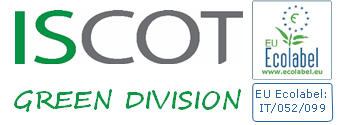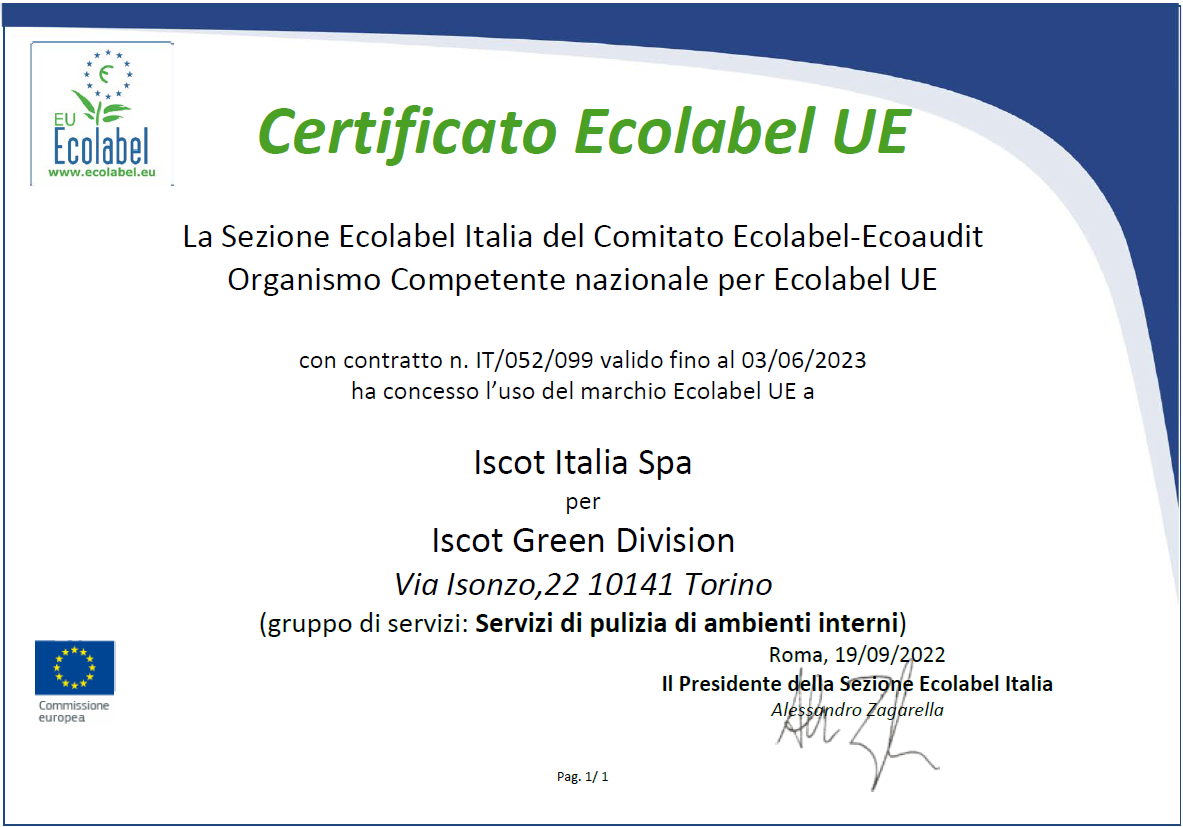Safety and Certifications

Iscot has developed its operational model as part of an Integrated System (Quality, Environment and Safety), organised in such a way as to maintain control over all those operational processes which could have an impact on quality of service, from a perspective of constant improvement and attention to our customers’ needs.
ESG Sustainability
 Our Sustainability Policy is described in the following document:
Our Sustainability Policy is described in the following document:
In addition to everything expressed in our Sustainability Policy, we also adhere to the Confindustria’s Charter of Environmental Sustainability Principles, whose values and objectives we support and promote..
The achievement of short-, medium- and long-term environmental sustainability objectives
We set environmental protection as an integral part of our company activity and growth path.
The adoption of a preventive approach
We assess the impact of activities, products and services to manage their environmental aspects according to a preventive approach and we promote the use of the best available technologies.
The efficient use of natural resources
We promote the efficient use of natural resources, with particular attention to the rational management of water and energy resources.
Control and reduction of environmental impacts
We control and, where possible, we reduce emissions into the air, water and soil; we work to achieve further reduction of waste production and more efficient waste management, preferring recovery and reuse over disposal; we take steps to limit the effects of industrial activities on climate change; we promote the protection of biodiversity and ecosystems.
The central role of innovative technologies
We invest in research, development and innovation to develop processes, products and services which have increasingly limited environmental impacts.
Responsible management of services
We promote responsible management of our services throughout the entire life cycle, to improve performance and reduce environmental impact.
Responsible management of the supply chain
We promote the preservation of the environment in the management of the supply chain by involving suppliers, customers and stakeholders as primary actors in their own sustainability policies.
Awareness and training
We promote activities to inform, raise awareness and train our personnel, so as to involve the company and its organisation in implementing our own environmental policies.
ECOLABEL brand
 In 2022 Iscot Italia S.p.A. obtains the important EU ECOLABEL certification for “indoor cleaning services”, identified with the ISCOT GREEN DIVISION brand, created to identify and enhance the “green services with reduced environmental impact” that we design and provide.
In 2022 Iscot Italia S.p.A. obtains the important EU ECOLABEL certification for “indoor cleaning services”, identified with the ISCOT GREEN DIVISION brand, created to identify and enhance the “green services with reduced environmental impact” that we design and provide.
The EU ECOLABEL is a European environmental excellence label which is awarded by an independent body to products and services that meet high environmental standards throughout their life cycle, also taking into account the average life span of the products, the their recyclability, the reduction of packaging and their eco-sustainability.
 The EU ECOLABEL promotes the circular economy by encouraging producers to generate less waste and CO2 emissions throughout the production process. The label criteria provide stringent guidelines for companies seeking to reduce their environmental impact and ensure the efficiency of their actions through third-party audits.
The EU ECOLABEL promotes the circular economy by encouraging producers to generate less waste and CO2 emissions throughout the production process. The label criteria provide stringent guidelines for companies seeking to reduce their environmental impact and ensure the efficiency of their actions through third-party audits.
Iscot Italia S.p.A. has placed environmental sustainability at the heart of its policies and strategies for the development of its services. It therefore proposes eco-sustainable actions and solutions with low environmental impact and we help our customers achieve their sustainability and environmental protection goals, providing a virtuous path of change and continuous improvement for the benefit of the entire community.
ISCOT GREEN DIVISION services use:
- Ecolabel certified chemicals
- Ecolabel certified, low environmental impact or recyclable materials
- Equipment and vehicles with low CO2 emissions
- Working methodologies for the reduction of chemical agents and the limitation of waste
- Energy solutions from renewable sources
- Working methods with dosing systems to reduce water consumption
- Separate waste collection systems
